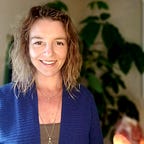Understanding Our Part
I recently prioritized attending Listen, Learn, Act through the Earth and Spirit Center. This class was established from The Path Forward, an initiative developed by the Louisville Urban League following Breonna Taylor’s death.
In its third semester, the Earth and Spirit Center has organized this class primarily for their white majority followers to have a chance to listen and learn from Black Louisville leaders. They then come together to see what actions can be taken to help close the deeply segregated gap within our community.
As a white ally who grew up relatively unaware of racial division, it has taken me a lot of listening and learning to understand that using terms like white, Black, racist, colonialism, and individualism help to clarify and honestly speak to the systems of oppression we are a part of. As a white woman, when I refer to we in this article, I’m referring to the white majority.
We tend to resist discomfort and deny our contribution to oppression. We say things like we don’t see color, that all people are created equal, or that hard work equals success. This resistance shows up by removing responsibility from ourselves and putting it on outside circumstances or other people. It’s critically important to become aware of our impulse to respond or reject instead of absorb, so we better understand our role.
I learned much about the importance of shared ancestry and affirmation in class. We might not consider the critical importance of seeing oneself as good, whole, and beautiful. We have this automatically affirmed through our media, teachers, day-to-day interactions, and in recognizing most people in power.
Dr. Rashad and students of the Men of Quality at Breckinridge High School taught us the history of our national anthem, our community, and how their work allows Black youth to experience themselves as whole, beautiful beings. You can donate to their organization by sending a check to Men of Quality, Breckinridge High School, 1128 E Broadway, Louisville, KY 40204.
Did you know that Black youth face up to six microaggressions daily? A microaggression is a term used for daily verbal, behavioral, or environmental slights, intentional or unintentional, that communicate hostile, derogatory, or negative attitudes toward stigmatized or culturally marginalized groups. We need to learn how we participate in these and recognize the need to change measurements around educational testing, punishment policies, and support for achievement.
I learned about the scientific impact of racial trauma over generations. Dr. Steven Kniffley of Spalding shared a study done on generations of birth weight showing continual reductions in weight over multiple generations despite better access to medical technology due to the mother’s experience of compounded racial trauma. There are areas in our city with higher infant mortality rates than some developing nations.
I learned about the population of neighborhoods in my city and how the lack of affordable housing impacts the ability to thrive. Dr. Karen Krigger of UL Health shared that the West End of Louisville, an area affected explicitly by redlining, would be the third largest city in the state if separated from Louisville. Redlining in our city and others in the nation prevented generational wealth from accumulating and allowed industry to move in, creating poverty and compounding health issues over time.
Stachelle Bussey of the Hope Bus shared 60,000 people in the West End share two Krogers.
We understand that basic needs like nutrition, housing, mental health, one’s ability to pay bills, and fresh air make up a positive outcome for health. We must dig deeper into the compounding effects of our racist systems like jailing and microaggressions to change policy that will support our community more justly.
Knowledge is power, and when we know better, we can do better. We must get involved in the work individually for healing to occur. This all comes with grace. Understanding our active place in systemic racism can bring up discomfort that needs to be sat with. Go slowly. Take breaks. Start again. The change begins with us building resilience to our discomfort to enjoy the beauty of agape.
Since this article was written, another Listen, Learn, Act Class has been established at the Earth and Spirit Center and begins February 14.
